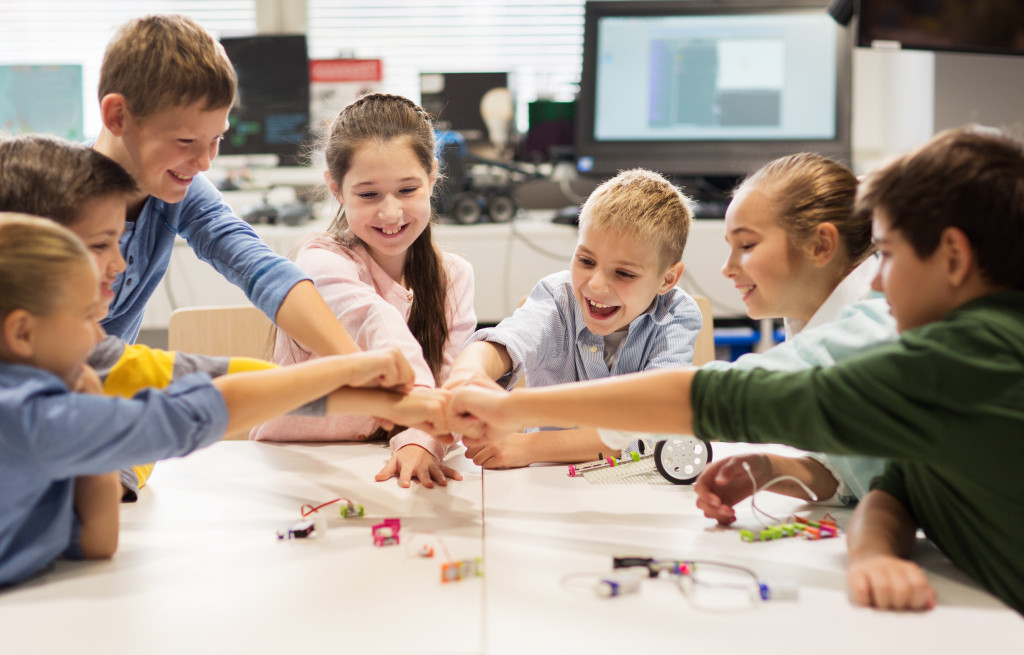- Educational institutions help to build future leaders by providing students with theoretical knowledge and experiential learning.
- Museums and historical sites provide valuable content on historical events, personalities, and culture.
- Sports clubs teach essential leadership qualities such as teamwork, responsibility, discipline, and respect.
- Parents and family members can foster leadership qualities in their children by encouraging decision-making and promoting communication.
As you may know, leaders are not born with leadership qualities. Leadership skills are instilled with proper grooming, guidance, support, and a conducive environment. However, building future leaders is not just the sole responsibility of educational institutions or parents.
Communities have to contribute to the development of the upcoming leaders of the nation. The role of the whole community is thus critical. It may include resorts, sports clubs, museums, historical sites, etc. This article will explore the influential roles that the whole community plays in building future leaders.
Educational Institutions
Educational institutions are one of the most critical components of the community, actively involved in molding future leaders. With dedicated teachers and competent administration staff, students receive theoretical knowledge and experiential learning. The educational environment, science clubs, social clubs, and other buildings help students develop different skills, including critical thinking, decision-making, confidence, etc.
In addition, community public charter schools provide a unique educational experience, often focused on integrating essential life skills into the curriculum. This type of education can help create well-rounded individuals with a greater sense of responsibility and self-confidence necessary to become great leaders.
Museums and Historical Sites

Museums and historical sites provide valuable content on historical events, personalities, and culture. These sites teach visitors the significance of places and events and offer learning opportunities to encourage leadership development.
Understanding history provides an excellent opportunity to learn from the past. This knowledge helps build empathy towards an individual, community, or society, offering the foundation for becoming an effective leader with context and perspective.
Sports Clubs
Sports teach young people essential leadership qualities such as teamwork, responsibility, discipline, and respect. Being part of a team requires compromise, communication, and dedication, creating leaders who understand the importance of working together to achieve a common goal.
Through sports, young students gain knowledge of their weaknesses and strengths, allowing them to plan effectively to avoid liabilities. It presents a platform for expressing significant qualities that help develop leaders fit to take up different roles in the future.
Parents and Family Members
As parents and family members, you are responsible for fostering leadership qualities in your children. It’s not just about instilling confidence and motivation; it’s also about teaching them to be reliable, accountable, and empathetic. Here’s how parents and family members can shape leadership in children and help them become the leaders of tomorrow.
Encourage decision-making
One of the essential qualities of a leader is the ability to make the right decisions. Children learn decision-making skills when they are given opportunities to make choices. Encourage your children to make decisions about their daily activities, like choosing their clothes or deciding what they want for lunch. Provide them with options and guide them if necessary. This will help them develop critical thinking and problem-solving skills essential for leadership.
Foster Communication

Communication is critical to effective leadership. Encourage your children to speak up and express their thoughts and ideas. Listen to them and give feedback, which will help them develop their communication skills. Communication is about speaking and listening, so teach them how to be attentive listeners. Doing so, you are helping them build good relationships and develop empathy, an invaluable skill for future leaders.
Lead by Example
As a parent or family member, you are the first role model your child will have. Lead by example and set a positive tone for their growth as individuals. Model the behavior you want to see in your children. Show them what it means to be a responsible and accountable person. When they see the behaviors you model in action, they are more likely to adopt them.
Teach Them to Take Risks
Leaders often take risks to achieve great things. Encourage your children to take risks in a safe environment. Provide them with the necessary resources and support to pursue their interests and explore new opportunities. Teach them that failure is not the end but a chance to learn and grow. When children learn to take risks, they become more confident and are better equipped to handle challenges in the future.
The Bottom Line
Building future leaders requires the effort of the whole community. Together, they offer a variety of environments and experiences that broaden young people’s skills and interests and prepare them to become influential leaders. The entertainment industry, educational institutions, sports clubs, community centers, and museums, among others, have a role in shaping the future of leadership. It is a collective effort that makes a difference in the world of tomorrow.


